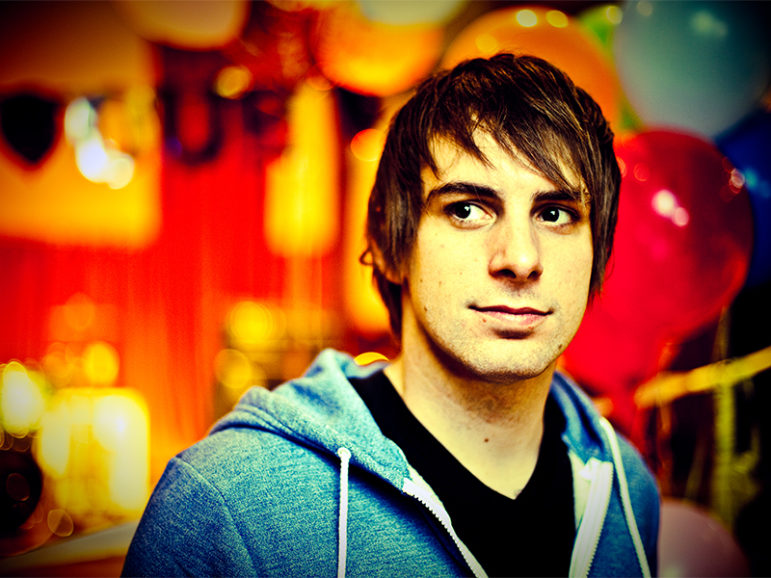In August, it seemed that Trey Pearson of “Everyday Sunday” would become the first openly gay artist to grace the stage at a major Christian music festival. But when he publicly announced that he would be performing at Joshua Fest, not everyone was excited about the milestone.
Eleven members of Joshua Fest’s production team threatened to quit if Pearson performed, so event leaders dropped him from their roster. But the story did not end there. Several bands who were also invited to play the festival were disturbed by the public snub of an LGBT person. In a surprise move, the band “Five Iron Frenzy” invited Pearson on stage to perform their last song at Joshua Fest with them. According to reports, attendees were crying at the show of solidarity.
Christians on both sides of the so-called gay debate can find something to love in this story. Conservatives can celebrate the backlash against Pearson’s invitation and event leaders’ decision to rescind it. Liberals will praise Joshua Fest for inviting him to begin with and the courage of “Five Iron Frenzy” to make space for Pearson anyway. But I think this festival saga is a snapshot of the wider debate happening among Christians.
Trey Pearson’s woes reveal at least three truths about American Christianity and LGBT issues:
Traditionalists are still a force with which to reckon: Progressive Christians often speak about Christians with a traditional stance on same-sex issues like a dying minority on life support. While most Christian groups are becoming more accepting of homosexuality, traditionalists still comprise roughly half of all Christians. And this resistant bunch isn’t indifferent either. Their leaders are influential, their organizations are well-funded, and their constituency is loud.
In Pearson’s case, a handful of upset traditionalists were able to get him booted from the roster. This isn’t the first time leaders have been pressured to walk back their decisions. After World Vision announced they would hire LGBT employees in 2014, the traditionalist outcry was so great that they reversed the policy two days later. It’s unclear whether most traditionalists will eventually become gay affirming or seek to strike some sort of cultural compromise on the issue, but for now, they remain stubbornly in place.
Traditionalists’ resistance is mostly rooted in conviction, not hatred. Though more progressive readers might disagree, Christian resistance to LGBT relationships and marriage is not mostly fueled by red-eyed rage and hatred. There are plenty of exceptions, and you don’t have to locate a Westboro Baptist wingnut to discover Christian ignorance and hatred toward LGBT persons. But these are the exceptions rather than the rule.
I grew up with traditionalist Christians, have attended mostly churches that hold to a traditionalist position, and at least half of my Christian friends do not affirm homosexual erotic behavior as holy. Whether the traditionalist Christians I’ve met are correct or not is a matter for debate. But I can say with confidence that the impetus for their beliefs is usually rooted in a particular interpretation of the biblical text and a desire to promote what they think is “holy” living.
Pearson’s story echoes this idea. In a Billboard interview, Joshua Fest owner Aaron Diello refused to call the upset stagehands “haters.” Instead, he said they were merely “good guys that need more Jesus.”
LGBT Christians finally have a seat at the table. At the turn of the 21st Century, “gay Christian” was considered by many believers to be an oxymoron. Even LGBT people who were committed to celibacy were often shunned. At many churches, if you were gay, you were gone. But much has changed across America and among the faithful.
It’s clear that we have now moved beyond the point where LGBT people are persona non grata in most Christian communities. Many prominent conservative congregations now welcome LGBT people to attend, worship, and even serve. Some Christian conferences have made space on their stages for LGBT people, and a handful of conferences have arisen specifically for gay Christians. Christian publishers have started publishing books by gay Christians and pro-LGBT advocates, and many Christian musicians are pushing for LGBT inclusion in their industry. Christian pastors, theologians, ethicists, leaders, and even the longtime editor-in-chief of Christianity Today, David Neff, have become open and affirming. So LGBT Christians finally have a seat at the table.
Pearson tells me that, when it comes to same-sex relationships, he believes Christians “are more divided than ever” but also shifting quickly. He says, “I think after the older generation dies out, that homosexuality will become predominantly affirmed in most churches.”
He’s right. While traditionalists are not rapidly disappearing, they are declining as a share of the Christian population. If current trends persist, the dominant majority of Christians will be LGBT-affirming in the near future. Perhaps we are approaching a day when a traditionalist Christian musician will be rejected from a mainstream stage because they are considered immoral. If that day arrives, traditionalist Christians will surely hope that progressives will treat them better than they have treated the LGBT community in years past.






